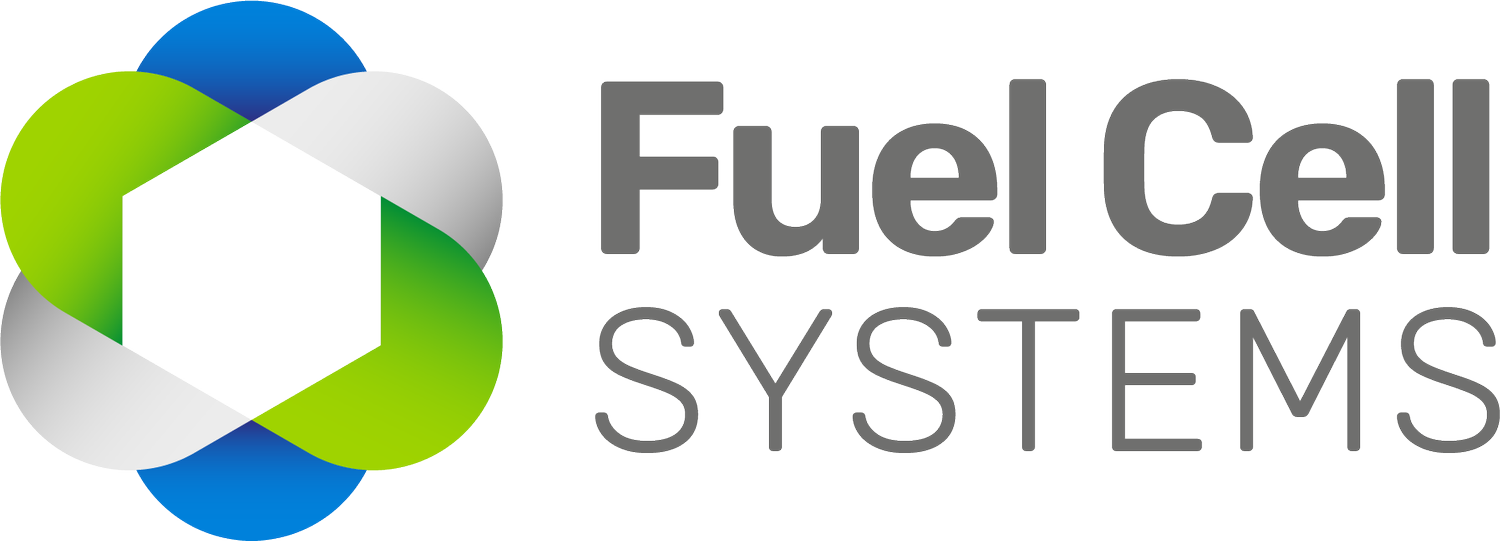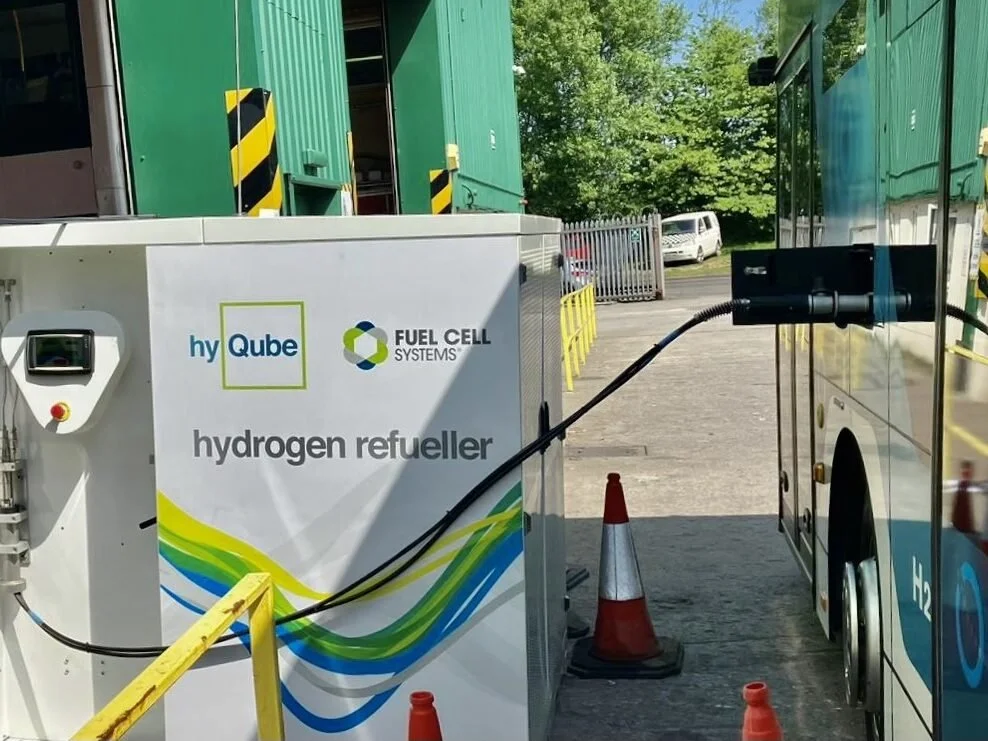Green Zero-Emission Public Transport Initiative in South Wales
HyQube 500 refuelling Hydrogen Bus in South Wales
Introduction:
Businesses in South Wales are showing the potential of hydrogen for transport in a demonstration of green, zero-emission public transport in the Neath Port Talbot and Swansea area. A recent initiative led by a private sector consortium, aims to address the climate change emergency and promote sustainable transportation solutions. Bus operator South Wales Transport and private hire operator Hyppo Hydrogen Solutions are at the forefront of this project, utilising locally-produced electrolytic hydrogen derived from renewable energy and local water sources.
Partners and Technologies:
Caetano Bus UK provides the hydrogen-fuelled H2 City Gold electric bus, while Fuel Cell Systems Ltd. supplies the essential HyQube Refueller, which plays a pivotal role in this innovative transportation endeavor. Protium, a green hydrogen developer, produces and supplies the hydrogen from their recently commissioned installation at the University of South Wales Hydrogen Center.
Benefits for Students and Communities:
As part of the trail, Swansea University exam students have had the opportunity to experience the advantages of this green public transport system. They enjoy quiet and pollution-free journeys to their exam halls, experiencing filtered air and improved air quality. This initiative aligns with Swansea University’s sustainability efforts, encouraging staff and students to embrace sustainable travel options and reduce carbon footprints and commuting emissions.
Expansion and Performance Evaluation:
The bus trial will continue to operate on the exam route and will also introduce an additional route between Neath Bus Station and the town of Pontardawe. This expansion aims to evaluate the bus’ performance on long hills, showcasing the advantages of hydrogen-powered vehicles in challenging terrains. Neath Port Talbot Council supports these trials and recognises hydrogen-fuelled buses as a practical solution for decarbonising public transport and improving air quality.
Opportunities and Commitment to Sustainable Development:
FCSL, building on their successful trial in Milford Haven, identifies significant opportunities for additional hydrogen production and refuelling sites in the region. This aligns with their commitment to advancing the commercial viability of hydrogen as a fuel source. By establishing local hydroge ecosystems and investing in Wales, they aim to position the region at the forefront of sustainable energy solutions. South Wales Transport, a family-owned business, actively participates in the trials and incorporates sustainable fuels and technologies to decarbonise their operations. Through the feedback from the vehicle drivers and passengers, they strive to inform future provisions and work toward achieving a Net-Zero public transport system in South Wales.
Conclusion:
This initiative highlights the promising demonstration of green, zero-emission public transport in South Wales. By utilising locally-produced electrolytic green hydrogen, this initiative promotes cleaner and more sustainable transport options. With the support of key partners, this project showcases the commitment of stakeholders to decarbonise the transport sector and transition to sustainable energy solutions.



